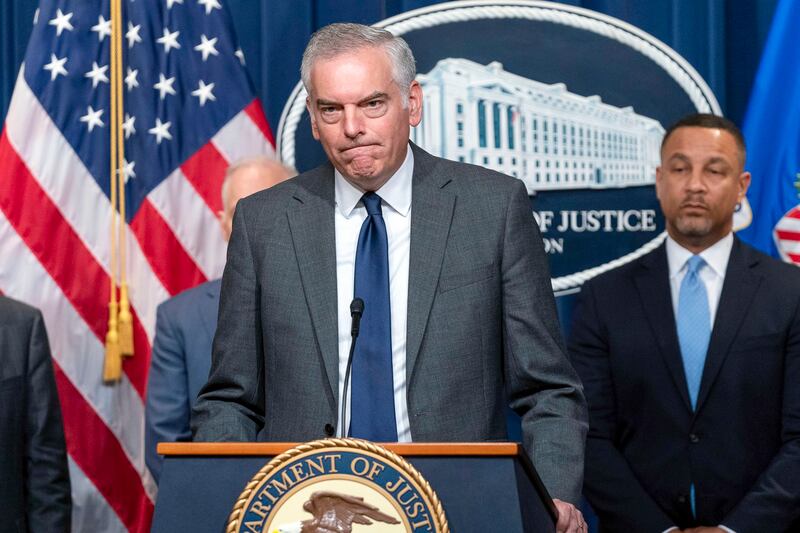The United States on Friday blacklisted 37 Chinese companies it said were buying American-made components to build spy balloons, drones and quantum computing facilities for the country’s military.
Among the 37 firms were 22 accused of “participation” in the quantum technology sector, 11 accused of ties to building spy balloons and four with alleged ties to the production of unmanned drones. Some also are believed to have shipped items to Russia for the war in Ukraine.
The sanctions bring the number of Chinese firms banned from dealings with American companies to 355 since the Biden administration took office in 2021, according to a statement from the U.S. Department of Commerce, which called the figure a record for any administration.
Alan Estevez, the under secretary of commerce for industry and security who has led the sanctions effort, said the blacklistings were due to “significant national security concerns” over how the firms were using American-made technology for military purposes.
“Today’s action is another decisive step in addressing challenges posed by the People’s Republic of China and its military modernization,” Estevez said. “We must remain vigilant in our efforts to prevent entities such as these from accessing U.S. technologies that could be used in ways that harm our national security.”

Matthew Axelrod, the assistant secretary of commerce for export enforcement, said that China acquiring advanced quantum computing capabilities, which would provide computing power dwarfing current abilities, would provide Beijing with “destabilizing” capabilities.
“Preventing Chinese companies from acquiring technologies that enable the … quantum, drone, and high-altitude surveillance programs is critical to protecting U.S. national security,” Axelrod said.
China’s Embassy in Washington did not respond to a request for comment.
Huawei licenses
The new sanctions follow a move by the Department of Commerce on Tuesday to revoke licenses from U.S. companies including Intel and Qualcomm that had allowed them to sell components to Huawei.
Under the Trump administration, Huawei was in 2019 added to a Department of Commerce list that requires American companies to obtain licenses before exporting any items to the company.
Intel and Qualcomm were both granted such licenses in 2020, also under then-President Donald Trump. Last month, though, Huawei unveiled its first AI-capable laptop, the MateBook X Pro, which is powered by an advanced processor produced by Intel.

That followed the release of the advanced Huawei Mate 60 Pro smartphone last year. Both products led to Republican lawmakers in the United States raising questions about export restrictions.
Leading Republicans, including Rep. Elise Stefanik, a contender for the vice presidential slot on the party’s presidential ticket in November, praised the license revocations as a boon to national security and even claimed credit for making them happen.
"I will continue to conduct critical oversight to ensure that the Bureau of Industry and Security takes its role as a national security agency seriously by adding more companies to the entity list and revoking additional licenses if needed," Stefanik said in a statement.
“We cannot provide Communist China with any technology developed in the U.S. that would give them an advantage,” she said.

But the move was less popular in Beijing, which has accused the United States of blocking Chinese companies from trading with American counterparts in order to disadvantage them competitively.
“China resolutely opposes the United States overstretching the concept of national security and abusing export controls to suppress Chinese companies without justification,” China’s Foreign Ministry said.
Edited by Malcolm Foster
